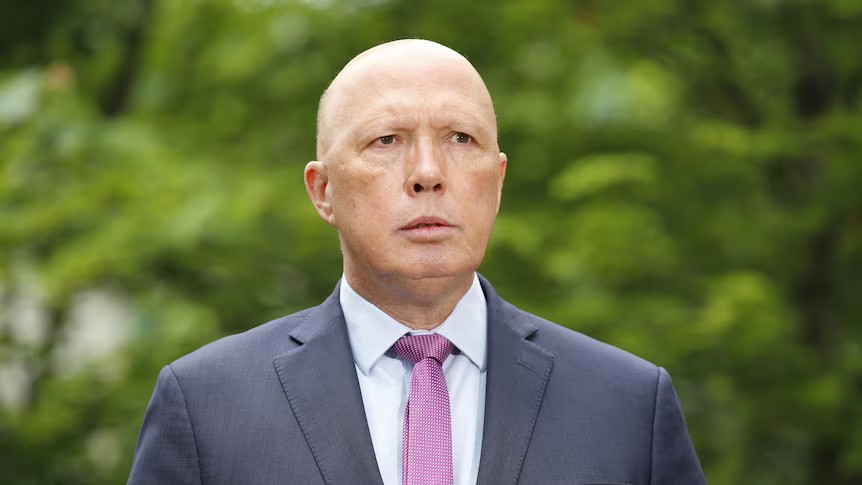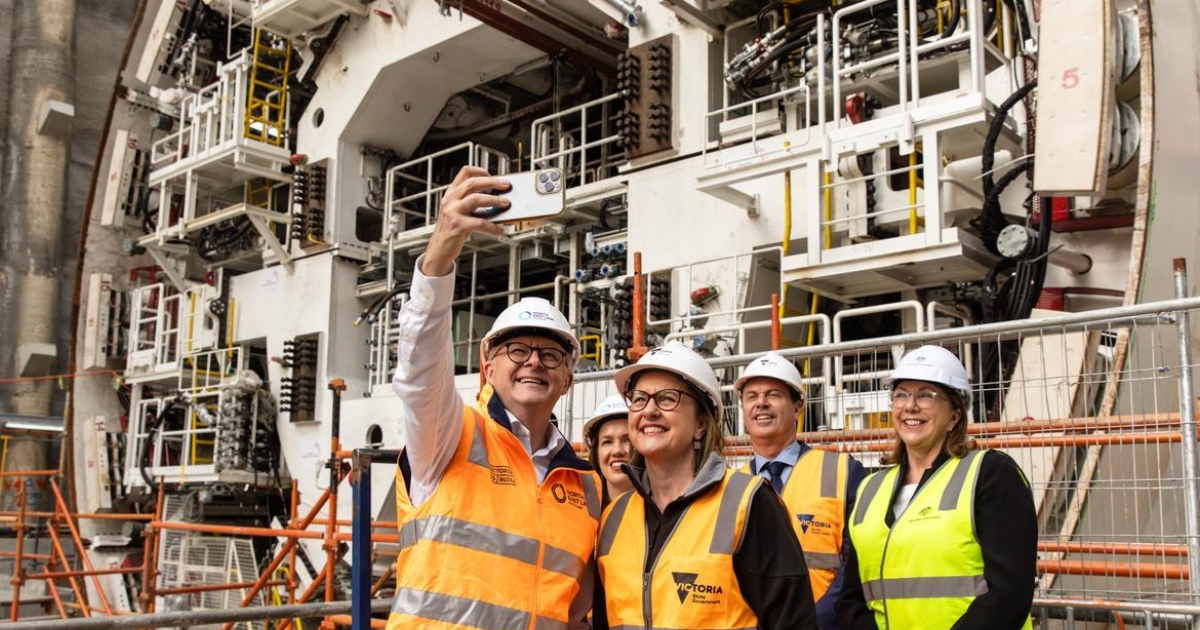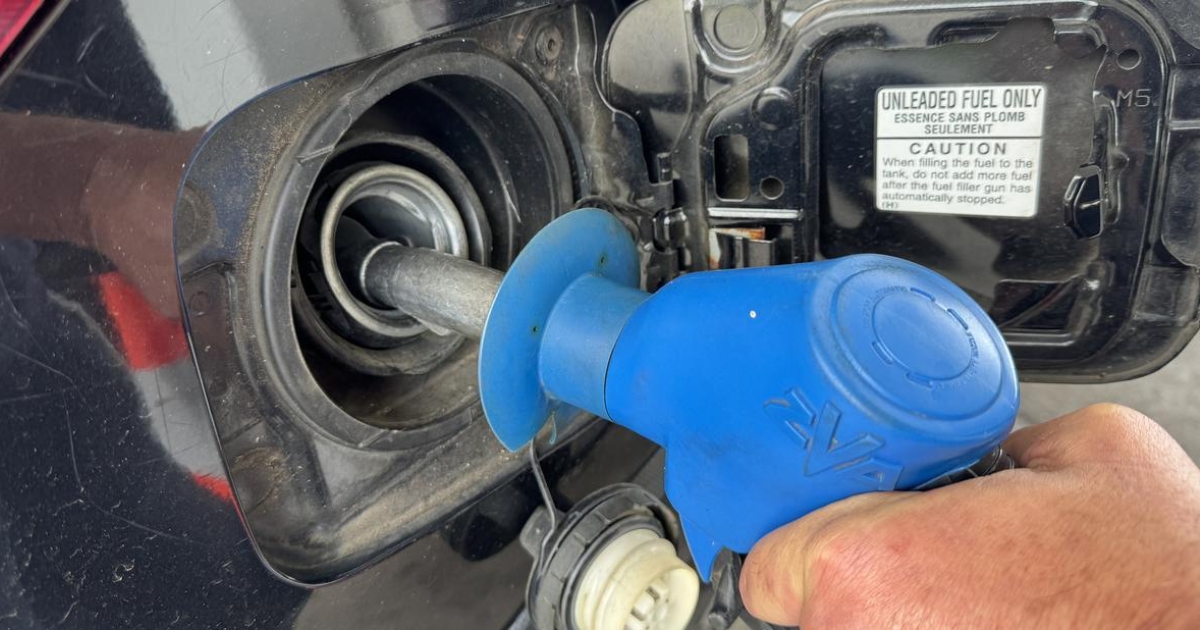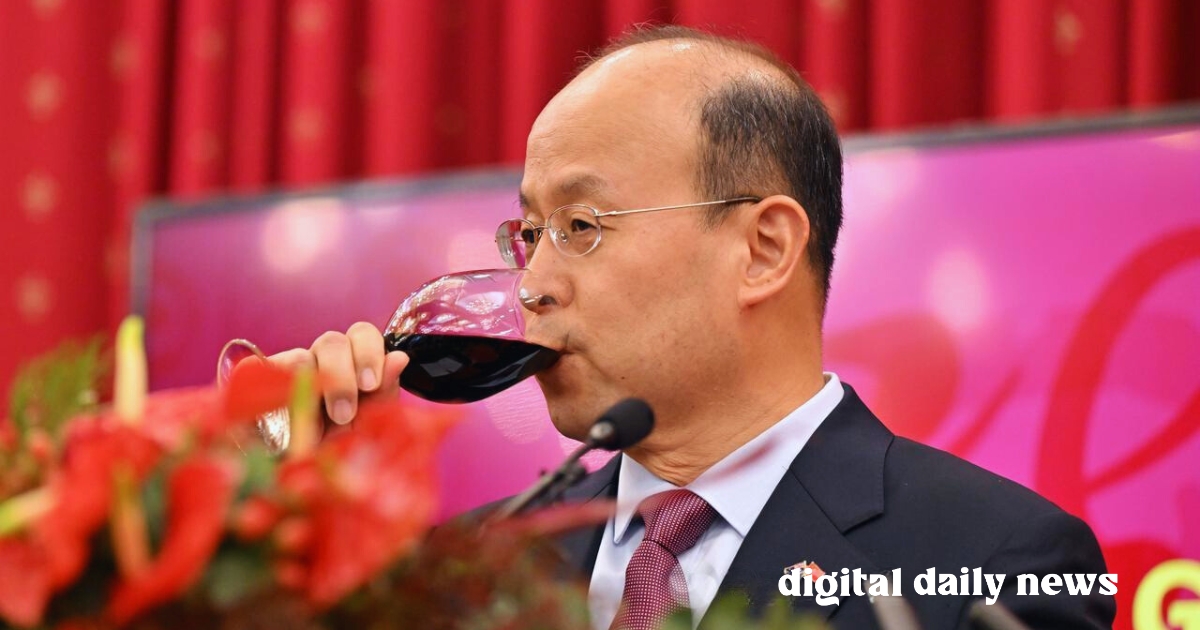Politics
PM Backs Spy Chief on Ex-Politician Revelation

The prime minister has defended the chief spy’s decision to not name a former Australian politician who betrayed the nation after being recruited by foreign spies.
ASIO director-general Mike Burgess revealed an ex-politician had been caught up in a spy ring and “sold out their country, party and former colleagues”.
He has since come under intense pressure to name the individual.
Prime Minister Anthony Albanese says he has confidence in the intelligence organisation.
“The idea that any minister in my government will just go out against the wishes of the ASIO director-general I find quite extraordinary,” he told reporters in Melbourne on Friday.
Mr Burgess made an independent decision to not name the person, with Mr Albanese saying the director-general’s speeches aren’t run by his office.
He revealed he was not aware of who the person was but “what we know is that it was wrong”.
“One of the things that we need to do as a nation is to build confidence in our agencies, not engage in short term politics or speculation like some have done – that’s not responsible,” he said.
“I will support our national security agencies and I think that all sides of politics should do that.”
Mr Burgess said the spy agency was sticking to its long-standing practice of not publicly discussing operational details.
“There are multiple reasons for this, including the need to protect our sources and capabilities,” he said in a statement on Thursday night.
“In this case, while we want the foreign intelligence service to know its cover is blown, we do not want it to unpick how we discovered its activities.”
Mr Burgess said it was a “historic matter that was appropriately dealt with at the time” and the person was no longer a security concern.
Foreign interference laws came into effect in late 2018.
International law expert Professor Don Rothwell said it could be devised the former politician was active before that time or authorities didn’t have enough evidence to support a prosecution.
Multiple MPs across party lines, speaking to AAP on the condition of anonymity, expressed reservations about retroactively applying the 2018 law despite being outraged at the person’s conduct.
Reasons for this included it was legally dubious to retrofit laws and a person shouldn’t be targeted for following the laws of the land at that time.
But another wanted all levers to be used to ensure the person faced justice and didn’t get away with “betraying their country”.
“There’s a line and this crosses party politics,” they said.
Opposition Leader Peter Dutton supports discussion about retrofitting the laws as “the most egregious act is from somebody in public office who betrays their country”.
In the same speech that outed the former politician and exposed Australian academics and a political party insider caught up in the foreign spy network’s web, Mr Burgess flagged previous actions would be covered by current laws.
“Several individuals should be grateful the espionage and foreign interference laws are not retrospective,” Mr Burgess said.
It was also difficult to prosecute anyone under foreign interference or espionage laws, including because it required the use of classified material agencies didn’t want in the public domain, opposition defence spokesman Andrew Hastie said.
The first person found guilty under the 2018 foreign interference laws was former Liberal Party candidate Di Sanh Duong on Thursday.
He will spend 12 months behind bars after he cultivated a relationship with the then-federal multicultural affairs minister, Alan Tudge, on behalf of the Chinese Communist Party.
Politics
Jobs boom beats expectations but weakness incoming

Stronger than Expected Hiring by Employers
Assuming economic activity is tapering, Australian employers have defied expectations with a stronger-than-expected hiring trend. Despite concerns, the labour market has shown resilience, surpassing government estimates.
Treasury’s Upgraded Employment Growth Expectations
Employers have upgraded expectations for employment growth in the coming year to a 2.25 per cent increase, a significant improvement from the initial 1.5 per cent projection. This reflects the ongoing resilience of the labour market despite economic tapering.
Another 150,000 jobs are expected to be created between now and mid-2025, indicating steady growth in employment. The government’s confidence in this growth is a positive sign for the job market moving forward.
Forecast for Job Growth and Unemployment Rate
Forecast suggests that while employment is expected to continue growing, the rate of growth may slow in line with a softening economy. With unemployment projected to tick up to 4.5 per cent by the June quarter of 2025, there are signs of potential challenges ahead for the job market. However, the initial data remains promising.
Outlook on future job growth and unemployment rates will depend on various factors, including economic trends, government policies, and global market conditions. It is crucial to monitor these developments closely to anticipate the future trajectory of the labour market.
Federal Budget Provisions for North East Link Project
Now, just days before the budget release, Prime Minister Anthony Albanese has confirmed a significant $3.25 billion allocation for Victoria’s North East Link road project. This funding commitment underscores the government’s focus on infrastructure development and job creation in key regions.
New Gas Policy and Support for Low Carbon Industries
To support Australia’s energy needs and boost key industries, the government has unveiled a new gas policy as part of the ‘Future Made in Australia’ industry policy. Minister Madeleine King emphasized the importance of gas in supporting manufacturing, food processing, and critical mineral refining to lower emissions and drive economic growth.
North, the gas strategy outlined in the budget aims to position gas as a crucial energy source beyond 2050, facilitating the transition to a more sustainable future while supporting key sectors of the economy.
Future Made in Australia Industry Policy
Policy, the ‘Future Made in Australia’ industry policy highlighted in the budget includes direct support for low carbon industries and businesses that serve the national interest. This strategic approach aims to boost innovation and sustainability across various sectors, driving long-term economic growth and job creation.
Provisions, under the ‘Future Made in Australia’ industry policy, will include targeted funding and incentives to promote green technologies, research, and development, aligning with the government’s vision for a more resilient and competitive Australian economy.
Resources Minister’s Remarks on Gas Strategy
While outlining the gas strategy, Resources Minister Madeleine King emphasized the crucial role of gas in supporting key industries and lowering emissions. The government’s focus on gas as an important energy source aligns with the goal of fostering economic growth and environmental sustainability.
Criticisms from Climate and Environmental Groups
You, climate and environmental groups have raised concerns about the government’s continued support for gas as an energy source through 2050. Despite acknowledging the role of gas in certain industries, critics argue for a stronger emphasis on renewable energy solutions to address climate change and reduce environmental impact.
Politics
‘Under the pump’: expenses help for battling families

Many Australians doing it tough can expect extra cost-of-living support in the federal budget. The well-flagged tax cut relief under the reworked stage three package will be the primary source of cost-of-living help but Treasurer Jim Chalmers says there will be other sweet spots as well. “We know that people are under the pump,” he told reporters on Monday, acknowledging the toll of still-high consumer prices and elevated mortgage repayments. “That’s why a central focus of this budget in eight days time will be cost-of-living help for people primarily through the tax system, but not only through the tax system, and also making sure that we’re doing what we can to put downward pressure on inflation.”
Students are in line for more financial support, with $3 billion of student debt to be wiped and paid placements for those doing nursing and other relevant degrees. Following stronger-than-expected March quarter inflation, economists have been warning too much budget spending could keep pressure on consumer prices and delay interest rate cuts. Dr Chalmers says cost-of-living relief can be designed in a way that takes pressure off inflation, like its energy bill relief last year.
Yet subsidised energy bills free up extra money in household budgets to spend elsewhere, pushing up the price of other goods and services, leading economist and budget expert Chris Richardson said. The government should try to avoid “poking the inflationary bear” by proceeding cautiously with extra spending, he said. Dr Chalmers defended his government’s record on managing inflation in the budget, arguing its earlier cost-of-living measures had brought prices down and recommending caution when focusing solely on “the quantity or the magnitude of spending in the budget”.
“The quality of spending, the timing and sequencing of that spending matters, as well as the quantity of that spending,” he said when asked if the budget would be contractionary in the upcoming financial year – that is, taking more money out of the economy than is spent. Shadow treasurer Angus Taylor said he had no doubt the government would keep spending. “This is why we’re hearing economists from many quarters coming out and saying they’ve got to stop the spend-a-thon … that will take pressure off this homegrown inflation,” he told Sky News.
Higher tax revenues over the past few years because of high commodity prices and a strong economy are likely to come down over the next five-year forecasting period. Tax revenue is expected to be $25 billion higher over that time period than when Treasury last updated its forecasts in December. Labor will bank about 95 per cent of the additional revenue, it says. Mr Richardson is forecasting a larger $41 billion revenue upgrade. The economist says Treasury has an incentive to be conservative “to give the treasurer of the day a series of happy ‘surprises’ on the budget front”.
Yet he agreed that revenue surprises were shrinking in size. “This trend is not our friend”, he said.
Politics
China drops heavy tariffs against Australian winemakers

Most recently, China has abolished heavy tariffs against Australian wine, marking a significant step towards improved diplomatic relations and trade ties between the two nations. The Chinese government had agreed to review the wine tariffs five months ago and has gradually unwound the trade barriers since then. The Commerce Ministry in Beijing announced on Thursday that it was no longer necessary to impose anti-dumping duties and other levies on imports of Australian wine.
Prime Minister Anthony Albanese expressed his gratitude for this development, stating that the re-entry of Australian bottled wine into the Chinese market will benefit both Australian producers and Chinese consumers. The removal of these tariffs comes at a critical time for the Australian wine industry, which had faced difficulties exporting to China due to the imposed trade barriers.
In 2019, Australian wine exports to China were valued at $1.1 billion before the tariffs were implemented during the height of diplomatic tensions in 2020. The removal of these duties means that Australia will no longer pursue legal action against China at the World Trade Organisation, which had been initiated by the former coalition government.
While the Australian government’s approach is to cooperate with China when possible and engage in its national interest, some trade barriers still remain. Chinese tariffs are still in place for Australian rock lobster and beef, and in 2020, Beijing imposed trade sanctions worth $20 billion on a variety of Australian products, including coal and cotton. The tariffs on Australian wine specifically amounted to a hefty 220 per cent tax.
As South Australian Wine Industry Association president Kirsty Balnaves noted, the Chinese market has evolved since the imposition of tariffs. There is now stronger in-market competition for wine, increased choices for consumers at various price points, and a decline in alcohol consumption. Balnaves emphasized that South Australian exporters will need to invest time in assessing opportunities, creating awareness, educating consumers, and reintroducing their wines to the market.
Despite the remaining challenges, Prime Minister Albanese reaffirmed his government’s commitment to trade diversification and supporting Australian businesses in selling their products on the global stage. The removal of tariffs on Australian wine is seen as a positive step towards strengthening trade relations between Australia and China, and it is hoped that further trade impediments affecting Australian exports will be addressed in the future in the interests of both countries.
-

 Business2 years ago
Business2 years agoHow to Earn Money Writing Blog Posts in 2023: A Comprehensive Guide
-

 Games2 years ago
Games2 years agoHow does Dead Space Remake enhance the Horror Classic of 2008
-

 Video2 years ago
Video2 years agoEverything you need to know about Starfield
-

 Health2 years ago
Health2 years agoHow is Yoga and Pilates Bridging the Gap Between your Mind and Body
-

 Health2 years ago
Health2 years agoMigraine medications significantly improve the quality of life
-

 World2 years ago
World2 years agoSwiss Pharma Powerhouse Acino Expands into Latin America with M8 Pharmaceuticals Acquisition
-

 Self Improvement2 years ago
Self Improvement2 years agoEnhancing Relationships and Emotional Intelligence Through Mindfulness Meditation
-

 Health2 years ago
Health2 years agoFortrea Unveils Expanded FortreaRx™ Pharmacy, Elevating Patient Access Solutions








